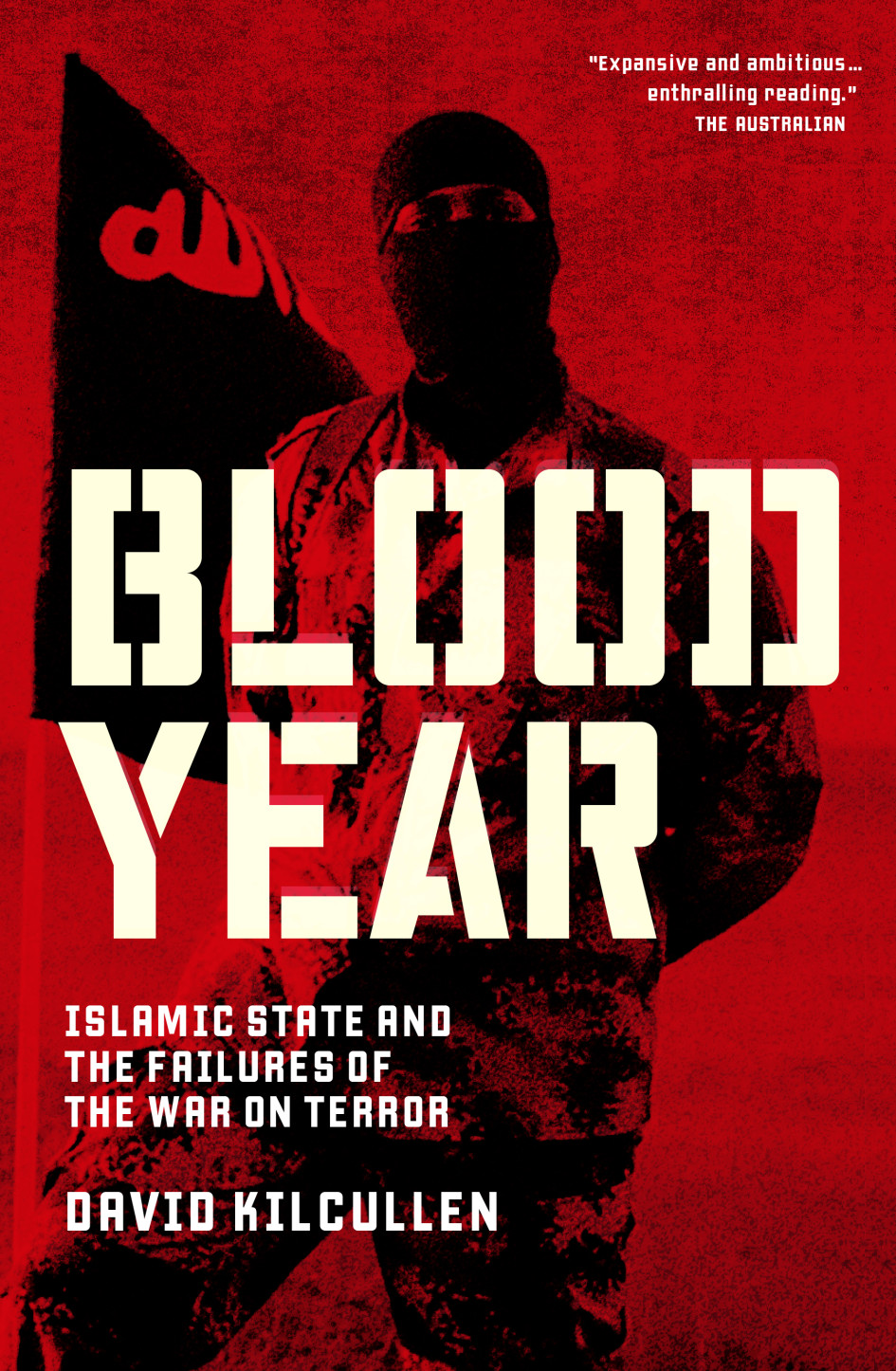Here is an extract from David Kilcullen’s Blood Year: The Failures of the War on Terror: As I write, Western countries (several, particularly the US, now with severely reduced international credibility) face a larger, more unified, capable, experienced and savage enemy, in a less stable, more fragmented region, with a far higher level of geopolitical competition, and a much more severe risk of great-power conflict, than at any time since 9/11. It isn’t just Islamic State; al-Qa’ida has emerged from its eclipse and is back in the game in Afghanistan, Pakistan, India, Syria, Somalia and Yemen. We’re dealing with not one but two global terrorist organisations, each with regional branches, plus a vastly larger radicalised population at home, and a flow of foreign terrorist fighters 10 to 12 times the size of anything seen before. Likewise, last year’s Taliban resurgence shows that as bad as things seem now, they can get much worse if the Afghan drawdown creates the same opportunity for Islamic State next year as the Iraqi drawdown did in 2012.
And with Russia’s intervention in Syria — more broadly, with what Carnegie Moscow Centre director Dmitri Trenin called Vladimir Putin’s “breakout from the international system since the end of the Cold War” — we’re facing a revival of great-power military competition in the Middle East, the Mediterranean, the Pacific and Europe that vastly complicates our options.
Far from being coincidental, this, too, is a direct result of the way our failures in Iraq, Afghanistan and the broader war on terrorism since 2001 have telegraphed the limits of Western power and showed adversaries exactly how to fight us.
In the Middle East, we’re watching an escalating Sunni-Shia proxy conflict — once a cold war but getting hotter by the day — in Yemen, Syria, Libya, Iraq and increasingly Turkey, a conflict that’s drawing battle lines between Iran and its allies, on the one hand, and a fractious coalition of Sunni states, led by Egypt and Saudi Arabia, on the other. We’re facing an unprecedented number of asylum-seekers and displaced persons, prompting a mass migration crisis on a scale not seen since the end of World War II.
Beside the immediate humanitarian impact of that crisis, its long-term effects on the political complexion (and hence on the security environment) of Western Europe and elsewhere are hard to predict, but unlikely to be positive.
After 14 years, thousands of lives and hundreds of billions of dollars, we’re worse off today than before 9/11, with a stronger, more motivated, more dangerous enemy than ever. So much is happening, simultaneously, in so many places, that leaders are struggling to decide what to do and in what order.
The Bush administration’s large-footprint approach, invading and occupying Iraq and Afghanistan, then committing to rebuild those countries from scratch at vast cost in time, troops, money and blood, amounted to what Maajid Nawaz, the former Islamist radical who now heads the London-based anti-radicalisation Quilliam Foundation, describes as “spreading democracy at the barrel of a gun”. Iraq, in particular, was an almost indescribably enormous strategic error that bogged down the US and its allies in a decade-plus counter-insurgency fight that demanded immense sacrifices from our troops, cost us our strategic freedom of action and eroded the legitimacy of a cause that, at the outset, enjoyed huge global support.
On the other hand, the Obama administration’s strategy of retrenchment — conflating leaving the war with ending it and mistaking rhetorical poses for effective policies — led to a series of withdrawals, climb-downs and half-measures that pulled the rug out from underneath whatever progress had been made in stabilising Iraq and Afghanistan, rendering those sacrifices useless and making a bad situation even worse.
It was an equal and opposite error: Barack Obama’s inaction in the face of crises in Egypt and Libya, failure to support democracy movements in Syria and Iran, and reliance on unilateral drone strikes, raids and targeted killings — to use Nawaz’s words again, “getting rid of the democracy but keeping the gun” — signalled weakness to Iran and Russia, midwifed the rebirth of Islamic State from the ashes of al-Qa’ida in Iraq, precipitated a horrific human tragedy in Syria and ultimately failed just as badly.


